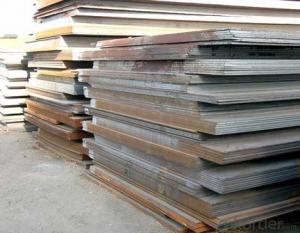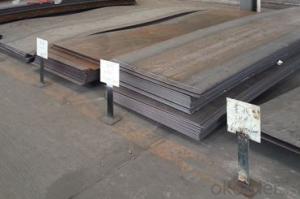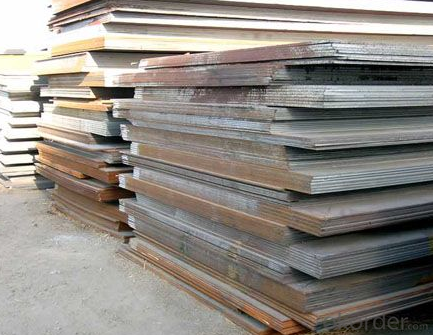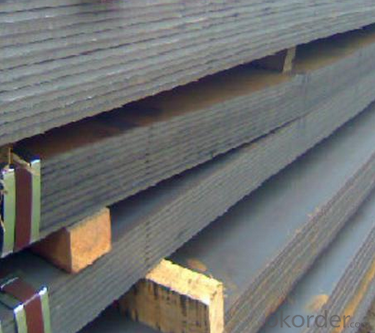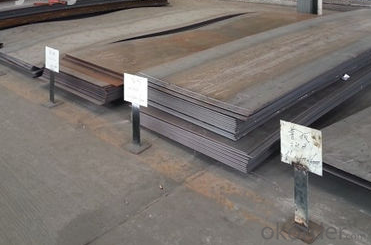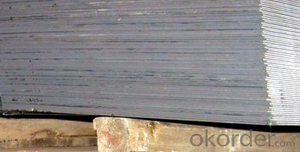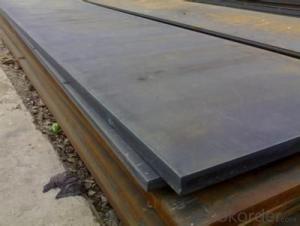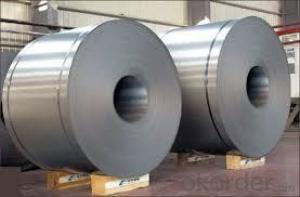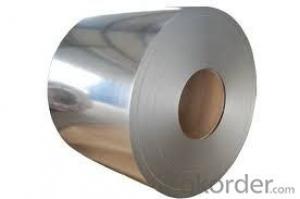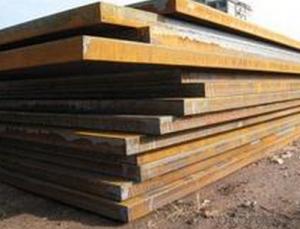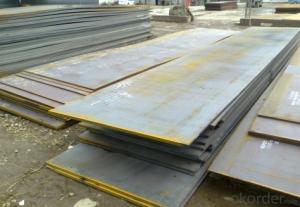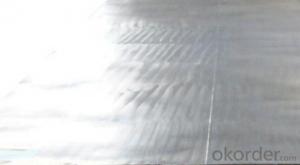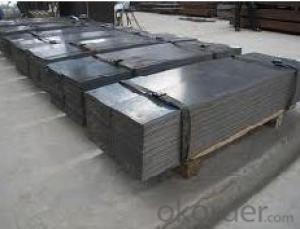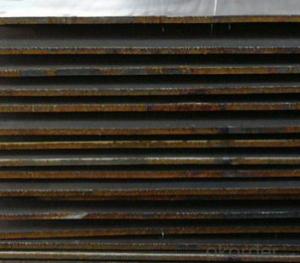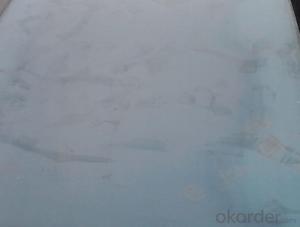Hot Rolled Carbon Steel Plate,Carbon Steel Sheet CCSB A36, CNBM
- Loading Port:
- Qingdao
- Payment Terms:
- TT OR LC
- Min Order Qty:
- 10 pc
- Supply Capability:
- 30 pc/month
OKorder Service Pledge
OKorder Financial Service
You Might Also Like
Quick Details
| Standard: | AISI, ASTM, GB, JIS | Grade: | Q195,Q235,Q345,A36,C45 | Thickness: | 1.0-30MM |
| Model Number: | Q235,Q195,Q345 | ||||
| Type: | Steel Plate | Technique: | Hot Rolled | Surface Treatment: | Coated |
| Application: | Ship Plate | Special Use: | Silicon Steel | Width: | 30-2000mm |
| Length: | as your requirement | standard: | hot rolled | Surface: | Anti-rust oil |
Packaging & Delivery
| Packaging Details: | seaworthy packages or as customers' require |
| Delivery Detail: | within 15 days after the advance payment |
Hot rolled steel plate
1 carbon steel plate 3mm thick General information
| Product name | Type | Specification | Implementation of GB | ||
| thick | wide | long | |||
| Carbon structural steel | Q195,Q215, Q235A,Q235B, Q235C,Q255, Q275 | 4-120 | 1500-4500 | 6000-12000 | GB/T700-2006 |
| Low-alloy structural steel | Q295,Q345A, Q345B,Q2345C | 4-120 | 1500-4500 | 6000-12000 | BG/T1591-1994 |
| Quality carbon structural stee | 30-50 | 4-120 | 1500-4500 | 6000-12000 | BG/T699-1999 |
| Ship steel | CCSA,CCSB | 4-120 | 1500-4500 | 6000-12000 | materials and welding condition |
| CCSAH32,CCSAH36 CCSDH32,CCSDH36 | 4-120 | 1500-4500 | 6000-12000 | materials and welding condition or GB 712-2000 | |
| Boiler steel | 20g,22Mng, 16Mng,19Mng | 4-120 | 1500-4500 | 6000-12000 | GB 713-1997 |
| Pressure vessel steel | 1622Mng,20R, 15MnVR,15MnVNR | 4-120 | 1500-2700 | 6000-12000 | GB 6654-1996 |
| European standard plate
| S235JR,S235J0, S275JR,S275J0, S275JR2,S355JR, S355J0,S355J2 | 4-120 | 1500-4500 | 6000-12000 | EN 10025 |
| Japanese standard plate | SS400,SS400-B | 4-120 | 1500-4500 | 6000-12000 | JIS G3101-2004 |
2 carbon steel plate 3mm thick detail specification
Material:
A283Gr.D/A573Gr.65,A516Gr65,A516Gr70,A284Gr.D
SS400,SS300,CCSB A36,A32,LRA32,LRB,Q235
Q195,Q235,Q345,SS400,ASTM A36,E235B
Thickness: 4mm-120mm
width: 1500mm-4500mm
Length:2-10m ,accordingly
Thickness | 4-120mm |
Width | 1500-4500mm or as custom's request |
Length | 2-12m,as your requirment |
Technique | Cold rolled or hot rolled |
Surface treatment | Bare, galvanized coated or as customer's requirements. |
Standard | ASTM,EN,GB,JIS,GB |
Material | A283Gr.D/A573Gr.65,A516Gr65,A516Gr70,A284Gr.D SS400,SS300,CCSB A36,A32,LRA32,LRB,Q235 Q195,Q235,Q345,SS400,ASTM A36,E235B |
Terms of Payment | L/C or T/T |
Chemical composition | C≤0.004%;Si≤0.030%; Mn ≤0.17%;P≤0.012%; S≤0.010%; Fe balance |
Delivery Detail | within 30days once receive deposite or confirm L/C |
Packing | Standard export packing,or as requirement |
3 carbon steel plate 3mm thick application:
construction,machinery manufacturing, container manufacturing, shipbuilding, bridge construction. Can also be used to manufacture a variety of containers, the furnace shell, furnace plate, bridge and vehicle static steel plate, low alloy steel plate,shipbuilding plate, boiler plate, pressure vessel plate, pattern plate, tractor parts, automobile frame steel plate and welding components
- Q: What are the different edge treatments for steel sheets?
- Steel sheets can be treated with various edge techniques depending on the desired functionality and aesthetics. Some common treatments for steel sheets include: 1. Deburring: To enhance safety and prevent injuries during handling and installation, any burrs or sharp edges formed during manufacturing are removed. 2. Beveling: Creating a sloping edge on the steel sheet facilitates welding or joining multiple sheets. Beveled edges provide a smooth transition and strengthen the joint. 3. Chamfering: For a polished and finished look, a beveled edge is created on the steel sheet, primarily for aesthetic purposes. 4. Hemming: In the automotive and appliance industries, the edge of a steel sheet is bent back onto itself to create a safe and smooth edge, eliminating the need for additional finishing or edge protection. 5. Rolled edges: The edge of the steel sheet is bent in a curved or rounded shape to enhance structural integrity, reduce the risk of injury, and improve the overall appearance. 6. V-grooving: A V-shaped groove is cut along the edge of the steel sheet, commonly used for decorative purposes or to create a clean and precise joint when joining multiple sheets. 7. Flanging: The edge of the steel sheet is bent or folded at a specific angle to increase rigidity and strength, particularly in applications where the sheet needs to support weight or resist bending. Each edge treatment serves a specific purpose and should be chosen based on project requirements, considering factors such as functionality, safety, aesthetics, and ease of fabrication.
- Q: What is the hardness of the steel sheets?
- The hardness of steel sheets can vary depending on the specific grade and treatment of the steel. Steel sheets are typically measured on the Rockwell hardness scale, which measures the resistance of the material to indentation. The hardness of steel sheets can range from relatively soft to extremely hard, depending on factors such as the carbon content, alloying elements, and heat treatment processes used during manufacturing. It is important to consider the intended application and desired properties when selecting steel sheets, as the hardness can affect factors such as wear resistance, strength, and machinability.
- Q: Are the steel sheets suitable for architectural cladding?
- Steel sheets are indeed appropriate for architectural cladding. Steel, being a sturdy and long-lasting substance, offers outstanding defense against weather conditions and external influences. It is easily malleable and can be crafted into diverse shapes, making it extremely adaptable for architectural purposes. Moreover, steel cladding provides a contemporary and polished appearance, permitting the creation of visually captivating building exteriors. Additionally, steel sheets can be coated or painted to augment their ability to resist corrosion and to further personalize their look. All in all, due to their strength, durability, versatility, and aesthetic allure, steel sheets are widely favored for architectural cladding.
- Q: What is the price range of steel sheets?
- The cost of steel sheets can differ based on various factors, including the steel's type and grade, the sheet's thickness and size, and the prevailing market conditions. Typically, steel sheets can be priced between $0.60 and $1.50 per pound. Nevertheless, it is crucial to note that these figures are only approximate and subject to frequent modifications due to fluctuations in the steel market and other economic elements. To obtain the most precise and current pricing details for steel sheets, it is recommended to consult local suppliers or utilize online platforms.
- Q: What are the different types of steel sheets?
- There are several different types of steel sheets, including hot rolled, cold rolled, galvanized, stainless, and alloy steel sheets.
- Q: How are steel sheets made?
- Steel sheets are typically made through a process called hot rolling, where steel is heated until it becomes malleable and then passed through a series of rollers to reduce its thickness and shape it into a sheet form.
- Q: Can steel sheets be used for storage containers?
- Yes, steel sheets can be used for storage containers. Steel is a strong and durable material that can withstand heavy loads and harsh weather conditions, making it ideal for storage containers. It offers excellent protection against moisture, pests, and theft. Steel containers are commonly used in various industries such as shipping, construction, and warehousing. They are also popular for temporary storage solutions and can be easily transported and stacked. Additionally, steel containers can be customized with various accessories such as doors, windows, and ventilation systems to suit specific storage needs.
- Q: Can the steel sheets be used as a magnetic surface?
- Yes, steel sheets can be used as a magnetic surface.
- Q: What is the difference between a HRPO and HRSPO steel sheet?
- HRPO and HRSPO are both types of steel sheets, but they differ in their manufacturing process and resulting properties. HRPO stands for Hot Rolled Pickled and Oiled, while HRSPO stands for Hot Rolled Skin Passed and Oiled. The HRPO steel sheet is made by subjecting a hot rolled steel coil to a pickling process, which involves removing impurities and scale from the surface using an acid bath. After pickling, the steel sheet is then oiled to prevent corrosion during storage and transportation. This process results in a smooth and clean surface finish. On the other hand, the HRSPO steel sheet undergoes an additional skin pass process after pickling and oiling. During the skin pass process, the steel sheet is passed through a set of rolls to improve the surface finish and reduce its thickness. This process also imparts a certain level of cold work to the steel, enhancing its mechanical properties. In terms of properties, HRPO steel sheets exhibit good formability, weldability, and paintability due to their clean surface and lack of scale. They are commonly used in applications that require a smooth surface finish, such as appliances, automotive parts, and exposed architectural components. HRSPO steel sheets, with their improved surface finish and reduced thickness, offer even better formability and surface quality compared to HRPO sheets. They are often used in more demanding applications where precise dimensional control and surface aesthetics are crucial, such as automotive body panels, electrical enclosures, and furniture manufacturing. In summary, the main difference between HRPO and HRSPO steel sheets lies in the additional skin pass process that HRSPO undergoes, resulting in improved surface finish, reduced thickness, and enhanced mechanical properties. The choice between the two depends on the specific requirements of the application in terms of surface quality, dimensional control, and mechanical performance.
- Q: What are the different coating options for steel sheets (powder coating, paint, etc.)?
- Some of the different coating options for steel sheets include powder coating, paint, galvanized coating, and metal plating.
Send your message to us
Hot Rolled Carbon Steel Plate,Carbon Steel Sheet CCSB A36, CNBM
- Loading Port:
- Qingdao
- Payment Terms:
- TT OR LC
- Min Order Qty:
- 10 pc
- Supply Capability:
- 30 pc/month
OKorder Service Pledge
OKorder Financial Service
Similar products
Hot products
Hot Searches
Related keywords
